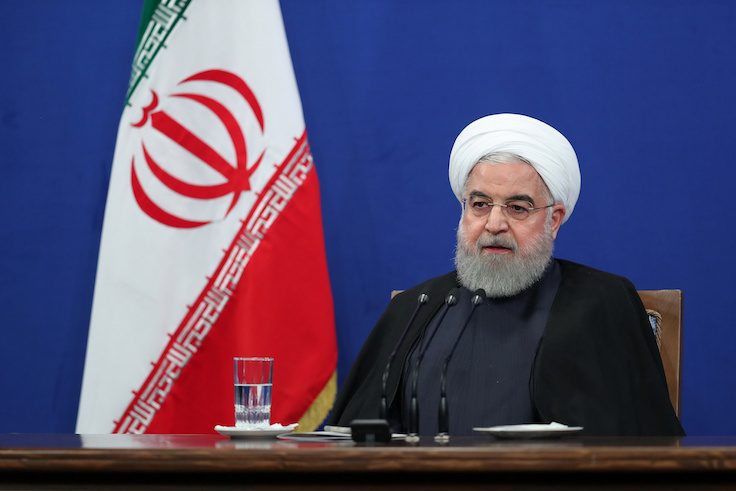Iran has quietly been developing a dangerous, militaristic space program, an Israeli defense expert said Friday.
While China and Russia have made headlines for their development of satellite fleets, anti-satellite missile production, and burgeoning strategic partnership in space, Iran has developed its own growing space program below the international radar.
According to missile defense expert Dr. Uzi Rubin, Iran’s rapid progress in developing its civilian and military space programs is a real concern, with 2020 being a watershed year for Iran’s space designs.
In April, Iran launched its first military satellite into orbit, which the Pentagon cited as an example of Iran’s aggressive behavior. "We want to make sure that they can never threaten the United States," U.S. Air Force general John Hyten, vice chairman of the Joint Chiefs of Staff, said in April when asked about the satellite launch.
The launch revealed that there are two space programs developing in parallel in Iran: the already-known Iranian Space Agency program, but also a program developed under the auspices of Iran's Islamic Revolutionary Guard Corps (IRGC), which the Trump administration designated as a terrorist organization in 2017.
"The very fact that the IRGC was authorized by Iran’s Supreme Leader to reveal that it has been running a space program of its own—and that it has its own industries, and research and development centers, to be able to do so—is indicative of an upgrading in the IRGC’s stature within the regime," Rubin said. "The IRGC’s air and space force has scored several noticeable successes."
By its own classification, the United States is now dealing with a terrorist organization with space-related aspirations.
"The space program is ... a crucial building block of its own in establishing a global range nuclear missile force as befits a global power, which Iran clearly aspires to be," Rubin said. "Iran's space program merits constant and detailed scrutiny no less than the missile program does."
A senior Pentagon official shared similar observations on China with the Washington Free Beacon earlier this month, saying that China aspires to "space great power" status, using investment in space as another tool of statecraft to reshape the American-led international order.
Accordingly, revamping the American strategy in space has been a major feature of the Trump administration's defense planning.
"In the years ahead, wars will not just be fought on land and sea like they have for thousands of years, or in the air as they have for the past century, but also in outer space and cyberspace in unprecedented ways," Secretary of Defense Mark Esper said in a Wednesday speech.
Our adversaries, Esper said, have turned space into a "warfighting domain."
"They have weaponized space through killer satellites, directed energy weapons, and more in an effort to exploit our systems and chip away at our military advantage," Esper added. To combat these developments, the Pentagon now boasts the largest research and development budget in its history as well as the establishment of the U.S. Space Force during the Trump administration.
